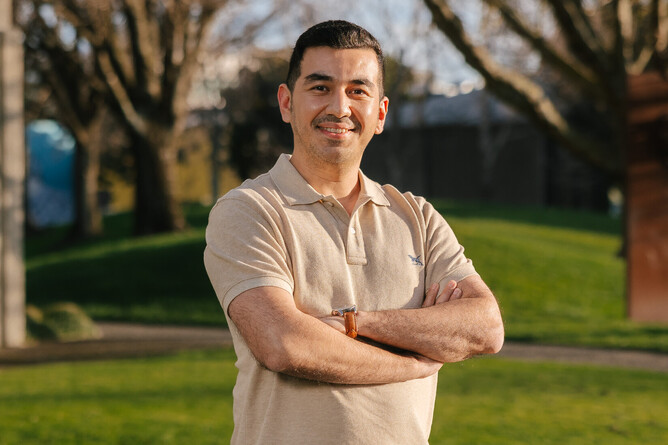The era of synthetic food colours is under pressure. With landmark decisions this year in the US from the FDA and major retailers like Walmart to phase out artificial colours, the food industry is in a race for natural solutions. The problem? Natural colours are notoriously unstable and often fade during food manufacturing and storage. That's the exact challenge BioChroma Tech is built to solve. They are re-engineering nature's colours to create vivid, high-performance colours that are cost-effective and can finally stand up to their synthetic rivals.
Meet the founder of BioChroma Tech, one of the ventures taking part in the Sprout Accelerator Spring25 Cohort. The team consists of founder Hamid Gharanjig, who brings a decade of industrial product development; his father, Kamal, a professor with over 35 years in colour chemistry who developed the core technology, and Mel Iri, a microbiology specialist who ensures the products meet health and safety regulations. Each an expert in their field, Hamid summarises that their diverse backgrounds complement each other, with their innovative work pushing the boundaries of the industry.
The idea for BioChroma Tech sparked during Hamid's PhD at the Institute for Colour Science and Technology (Iran) and Massey University. He identified a significant market gap, the massive performance gap between natural and artificial colours. After four years of dedicated research, he achieved a breakthrough, successfully stabilising sensitive natural pigments. It was clear this innovation couldn't just stay in a lab; it was a commercial solution to a significant industry problem.
Since then, Hamid and his team have been solving the instability of natural colours through a proprietary process they developed. It works by shielding the delicate colour molecules, which makes the natural colours strong enough to endure industrial processing and storage. This key innovation closes the performance gap, turning a fragile substance into a reliable, vibrant ingredient. A surprising discovery for Hamid was that their products also offer remarkable antioxidant activity. This dual benefit, providing both colour and health advantages, adds considerable value to their solution.
The next milestone for BioChroma Tech is scaling their lab-proven innovation into a commercial product. Their time in the Sprout Accelerator is a critical part of this strategy. Hamid is focused on refining the company's business structure and building a clear pathway to market, using the accelerator to make important connections with industry experts and mentors.
Beyond the business, Hamid’s ultimate aspiration is to bring innovation and sustainability to the food industry by developing safe products and processes for both people and the planet. For his team, success means changing the perception around natural colour products by showcasing that they can be high-performance, as well as offer additional health benefits.

